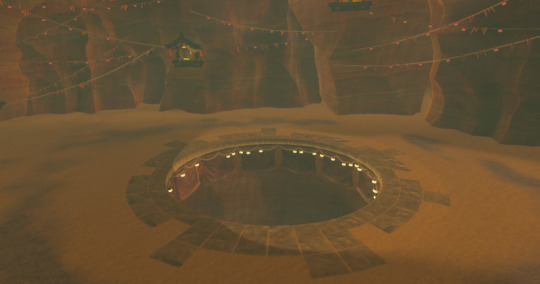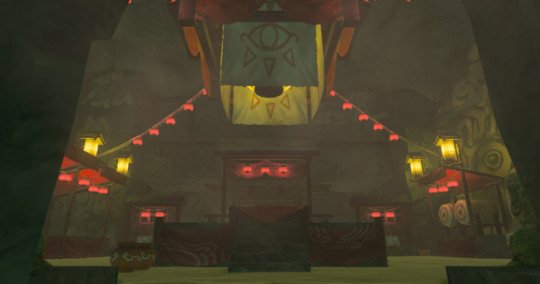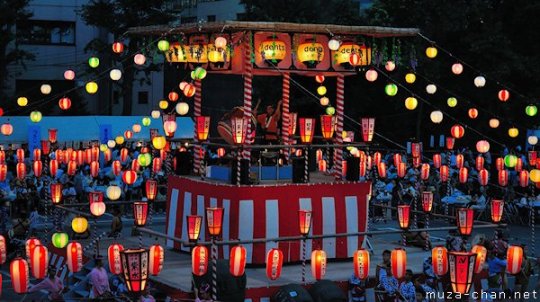#so i developed aaaaall this proposal and wedding stuff shortly before then <3< /div>
Explore tagged Tumblr posts
Text
I said I would do a headcanon post about Yiga Clan wedding ceremonies, so Here! I! Go! (If you're interested but missed it, here's a post about proposal headcanons.) Time for so many details and a very long post. Also, just at the outset, I wanna say that the other reason I've been thinking about this stuff recently (in addition to real world reason of me and my girlfriend getting engaged), is that my Kohga and Sooga just got married in an RP. So I'll be using examples from their wedding alongside others, in this post!

Preparation/Background
It should come as a surprise to no one that Master Kohga officiates all weddings. If a Master Kohga is getting married, their Right Hand will do it. If the Master is marrying their Right Hand (which is on the rare side but hey, Kohga's Nana also did it!), another high-ranking member of the Clan will do it. For Nana Kohga's wedding, it was the most senior historian, who had been friends with her father. For the recent nuptials, it was current Kohga's former Right Hand/sort-of-pseudo-uncle and Sooga's mentor, the very respected elder Blademaster Chisao.
Weddings are held outside, in the circular area by the chasm, like many of the Clan's festivals are. They start in the late afternoon (for whatever season they're happening in), so that afterward, a big dinner feast can be held indoors before the party commences back outside (after some of the seating is removed to allow room for dancing, etc).


The outdoor area is hung with lanterns as well as the strings of protective noisemaker talismans, and a tower is placed and hung with even more lights. This structure is reminiscent of those used for the Japanese Obon festival ("Creating a Champion" states that some design elements for Master Kohga and the Clan were inspired by Bon Odori dance!), but with Yiga flair. A similar decorative piece can be seen in the hideout in the games (see above left). It serves a couple of purposes. First, masks of the couple's ancestors are brought from the Complex's shrine and carefully hung around the sides of it. Second, that's where the band is placed!
That's an excellent segue to say that music also plays an important role in wedding ceremonies. An ensemble traditionally consisting of taiko (also seen in the above left image), shamisen, shakuhachi and shinobue plays background music throughout the ceremony, with specific cues/phrases/flourishes accompanying specific events. (It may be noted that a similar combination of instruments is used in kabuki theater; several elements of the Clan were also inspired by this art form.)
The marrying couple wears their very best clothes, of course, and polish up their masks for the big day! Formal attire is, again, similar to Japanese garments but not exactly (since the Sheikah and Yiga are Japanese-inspired but not...literally Japanese). A wedding is cause to wear long furisode-like sleeves and fancy-patterned haori, kimono, and hakama combos. Oftentimes, because these garments require fine fabrics that require a great effort for the Clan to create, parts of a person's wedding outfit are passed down through their family and re-tailored to them. The Clan does of course have a whole group of people who make clothes, and their training includes embroidery and silk-painting for just such special occasions! If you didn't think Kohga had a haori with Dinraal embroidered in gold thread on the back and phoenixes and Inverted Eyes painted in patterns all over it, you would be WRONG. He also wore his father's black wedding hakama! And Mama Hotaru's long and gorgeous wedding robe was black with a pattern of softly painted insects on it, in an homage to her family's naming tradition; it originally belonged to her own great-grandmother, who shared her name.

Ceremony
The ceremony begins with the officiant welcoming the Clan on this happy occasion and declaring that the date is "AUSPICIOUS!" I plan to do a post about Hyrule's calendar and associated "astrology"-type beliefs but for now suffice it to say that one could come up with a way that almost any day is auspicious (since nobody would want to say someone's wedding day is cursed or something), but couples do very often try to schedule their weddings for particularly positive dates (as I said in the last post, they have to wait at least six months--it doesn't have to be exact).
The couple is then called to approach from either side of the area. They are each accompanied by two family members--usually parents if possible. If not, more extended family or in the absence of any family, friends can do it. For example, Kohga's the last of his family lines aside from distant-er cousins, and Sooga wasn't born in the Clan, so Chisao's children (who both men are close with) stepped in. These four people act as assistants to the couple in various parts of the ceremony! It may be noted, that on each side, there is a group of three.
Yiga wedding ceremonies, like so much else they do, are meant to reinforce not only the joining of two individuals but the bonds that join the whole Clan together. For that reason, they involve several call-and-response-type declarations that all present participate in, and many references to the Clan's history.
The officiant recites the following: "Our Clan was born of conflict. May you weather any in your path. / Our Clan as ever weeps the blood of our fallen ancestors. May their spirits raise you up. / Our Clan has turned betrayal on its head. May you remain ever true." The last of these lines is accompanied by a gesture toward the speaker's mask, evoking the symbolism of the Inverted Eye.
There are two major sections of the ceremony that each require an exchange of three things, between the couple. The first of these sets involves three liquids: saké, water, and blood. The couple's assistants will pour them dishes of saké, which they then exchange and drink, and then the same is done with water. The saké represents the time, patience, and effort that must be put into a marriage, as preparation of the drink surely requires such care. The water represents life and replenishment--and it's not just any water, but some taken from the especially healthful spring at Satori Mountain (which I've said previously, the Clan has strong ties to)!
(NOTE: For this and one other notable part that involves eating/drinking, the partners lift their masks only enough to imbibe.)
For the blood, the couple are each handed a special knife with which they cut their palms. Carefully--it isn't meant to be a super deep cut, just enough to produce drops of blood. The couple then hold out their hands toward each other, palm down so those droplets fall to the sand. Their assistants then wrap the cuts with red bandages. The symbolism is multi-fold: to show the joining of blood/family, the willingness to endure pain and hardship for each other, and, since the blood is dropped to the ground, the Clan's connection to the land and its energy.
(NOTE: PLEASE DO NOT take this headcanon as some suggestion that I think the Clan is some kind of ~weird blood cult~. I absolutely do not think that. The Clan was born of a bloody conflict/betrayal. They have not forgotten this, nor will they forsake the blood, both in terms of family and in terms of bloodshed, that ties them together. I thus think it's reasonable to headcanon that the concept and symbolism of blood--as well as actual physical blood--are present in some of their rituals/traditions. There's nothing creepy or evil about it. It is meant to be a meaningful, loving exchange and promise. Please please do not willfully misunderstand me. Thank youuuu~ <3)

The second set of exchanges is of three gifts. This section of the ceremony begins with everyone present reciting the following together: "Our strength is in our edges. Our might in what we take. Our bond is what defines us. All three, our family make." Each of these three concepts is represented by the gifts, which are brought forward to the couple in succession by further family members or friends. (As in, someone brings the gift to the giver, who then offers it to the receiver.) For example, Sooga's helpers for this section were three of his most recent Blademaster trainees, who had all recently passed their tests!
"Strength" is represented by a weapon. The Yiga have always been willing to fight for their beliefs, and more importantly to protect themselves/one another. They have a strong culture of martial arts and weapons training. So, each member of the couple offers the other a weapon of some significance to them. The exchange is typically symbolic; if a woman gives her intended the vicious sickle she uses on missions as her Strength gift, the idea is that when she uses it going forward, it's in his honor. However, if a man gives his intended a meaningful family heirloom weapon that isn't in use anymore, the couple will continue keeping it among their belongings together. See? Kohga's father gave Hotaru his eightfold longblade, and she gave him a (carefully sheathed) poisoned dagger. Sooga gave the longblade Kohga first presented to him, at the ceremony when he became a Blademaster years before. The words of exchange for this gift are: "I give you this, my strength. / Will your strength defend my body? / I will protect you with all my strength. / Then this I accept."
"Might" is represented by, you guessed it, mighty bananas. A bunch is brought to each person, who selects one and peels and feeds it to their intended. I know we Earth gamers think the bananas are kinda funny, but to the Clan, they're quite the opposite. Food is serious business when you're a marginalized community considered wanted criminals by the outside world. For the purpose of a wedding, the exchange means the couple are promising to provide for one another as well as possible. (To clarify, the Clan is very highly communal about resources, but the thought here is that one party would go without to allow the other to eat if necessary, and that regardless both will do their part within the Clan as a whole, etc.) It's not even just about food; it symbolizes caretaking in general. The words of exchange for this gift are: "I give you this, my might. / Will your might nourish my soul? / I will care for your with all my might. / Then this I accept."
"Bond" is the most personalized of the three, and the associated gift is something that represents the individual giver! It may be an item they crafted, or something else that shows off one of their skills or interests. The idea is that the giver is offering themself to the receiver--something that makes them, them! There are so many possibilities, too, as the gift may be an object to keep, or something more abstract or ephemeral. For example, a member who makes clothing for the Clan might weave a garment or blanket for their intended. A cook might offer his partner her favorite food, prepared fresh right before the ceremony, to eat a few bites of on the spot. Hotaru's Bond was her music, in the form of a shamisen song she composed. Her son followed in her footsteps and went a step further, with a poem too! The words of exchange for this gift are: "I give you this, my bond. / Will your bond shelter my heart? / I will hold your heart in mine forevermore. / Then this I accept."
Following this exchange, the couple recites: "We grow in strength. We grow in might. Our bond is unbreakable. All three we pledge, that we will grow in love."

If the Master is a party to the ceremony, there's an additional section here. The other partner says, "I vow to serve you with my body, soul, and heart, and to follow where you lead forevermore." Then the Master says, "I vow to keep you with my body, soul, and heart, and to lead you ever with your joy in mind." And finally, they say in unison, "You are my guiding star, from now into eternity."
The final bit is a general vow recited together, as follows: I am with you through your joys and all your trials. I am with you by your side or over miles. I hold you as the sky holds sun and stars. Where my heart is, ever there you are. I pledge my life to you and to our Clan. To the future and our master plan. We join our souls together with our kin. Together may we all life's battles win!
AND THEN! As the couple JOINS HANDS for the first time as SPOUSES! The ENTIRE ASSEMBLY! Shouts with ALL THEIR MIGHT: "Glory to Master Kohga! Glory to the Yiga Clan! Long days and nights to the love of [name] and [name]!"
Post-Ceremony
Well then it's feast time!
And then it's party time! Bring on the bonfires and bananas and saké and music and chatter and dancing and--
Speaking of which, during the after-party, the newly-married couple will start off the dancing by performing one together while holding on to a red silk cord between them. Symbolizing, again, the joining of their souls and fates, and also the need to work together carefully in walking the path of life.
Additionally, as I have brought up several times in previous headcanon posts of mine, following the wedding ceremony, couples are now considered family and can see each other's true, un-magicdisguised, -masked, or -veiled faces. This is a big deal! (I do find it quite romantic, that partners court each other without knowing for sure what the other looks like. As I have said before, if both grew up in the Clan they will likely recall things like hair and eye color, but Yiga start wearing veils around everyone but their close family quite young and get their masks at the start of the year they are to turn eleven. So, what your partner's face looks like as an adult, or at all if you've truly never seen/paid attention to them before...well, it's something to anticipate!) Couples are given leave from work to go have a brief honeymoon away from the Complex if they wish, to go unmask each other and spend some good time together. A traditional place to do this is Satori Mountain, since most other people keep away from it anyway. <3 <3 Those who don't want to leave, get to stay in a sleeping room set aside just for this private purpose, instead!
Final Notes
Just wanted to point out, if it wasn't obvious, the threes in the ceremony. Three people on each side of the rituals, three liquids, three gifts. While the Yiga's particular wedding traditions have grown and changed from Ancient Sheikah customs over the millennia, to the point where Yiga marriage ceremonies have only a little in common with the older ones (and are quite different from contemporary Kakariko Sheikah ways), one small detail is the presence of threes. I headcanon that the Ancient Sheikah often utilized the number three in their various rituals and customs, to reference the Triforce, the three Golden Goddesses, the three major Springs across the land where Hylia is worshipped and their three attendant dragon spirits, etc. Some Yiga traditions also involve threes, despite that they've renounced their service to Hylia and to any deity in general. After all, even apart from that, three is an auspicious and satisfying number.
Master Kohga loves officiating weddings, it's one of his favorite parts of being Master Kohga. <3 It just delights him to his core, to see two of his fellow Clan members in love and getting together, and he really helps everyone make it a special day. (Weddings are an occasion when he's most likely to join the band for the party, twanging away on his shamisen...or two. He can make a double of himself. And use it to play duets! How fitting!) He's done the ceremony so many times over the course of his (so far) twenty-five years as Master, that he knows all the words by heart.
Which are more, for the officiant to say, than I've written out here. There's more that accompanies each exchange, for example. But this post was already six million miles long. So I'm going to end it now.
Thank you for taking the time to read! Hope you enjoyed!
#yiga clan#master kohga#sooga#yiga husbands#age of calamity#legend of zelda#banana bread#i had all of this worked out *months* ago and have been vibrating to share it but kept getting too busy and doing other topics instead#mostly about kohga's family so i could keep mentioning them as examples in more general posts like this#i alluded to it in the tags on the last post but i was being coy--kohga proposed at the end of february#so i developed aaaaall this proposal and wedding stuff shortly before then <3#anyway FOR REAL if you read all this THANK YOU! for taking the time to#i spent a bunch of time on this post!#made some silly lil' picture dividers and everything!#kidk says stuff#kidk headcanons
41 notes
·
View notes